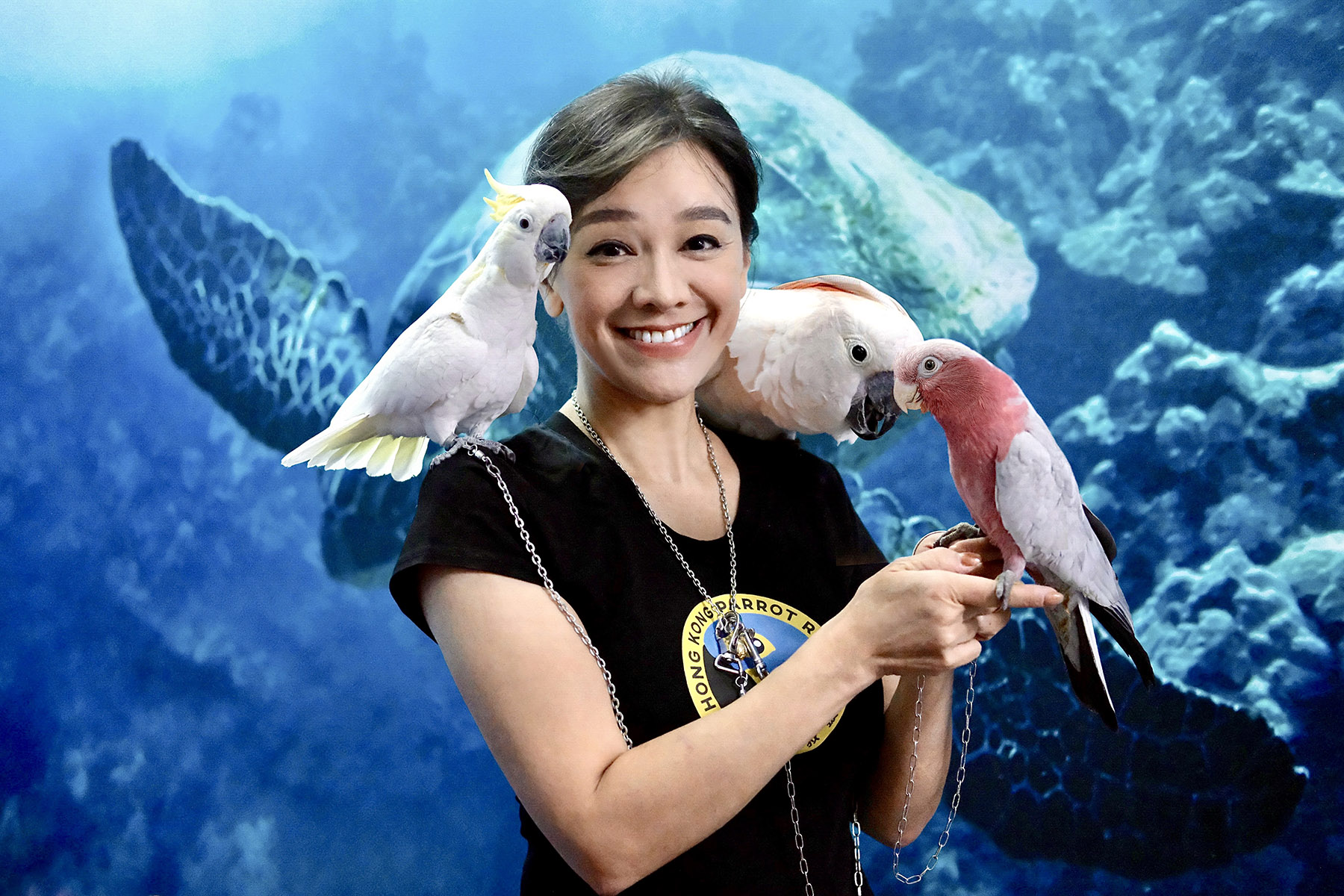
Sharon Kwok Pong strode into her office with a humble chain around her neck connected to a parrot leash — the only accessory she dares to wear daily.
“Everything else gets destroyed,” she laughed, just as Minnie — her yellow-crested cockatoo — nibbled at her sleeve. The playful bird had come to Kwok after its previous owner could no longer care for it.
A former “Miss Chinese International” beauty queen and television host, as well as an actress with over a dozen films to her credit, she chose to leave the glamor behind, turning instead to animal conservation.
READ MORE: Feathers across borders
Kwok’s father was a founding member of Ocean Park Hong Kong — the city’s prominent theme park. Growing up in such an environment, she had frequent exposure to animals from an early age. For her, the call to protect animals may be bigger than any crown.
Starting with conserving chameleons in the early 1990s, Kwok has been at the forefront of fighting the illegal wildlife trade, while promoting greater protection of endangered species through education. In 2013, she founded AquaMeridian — a Hong Kong-based nonprofit wildlife conservation organization — before launching Hong Kong Parrot Rescue (HKPR) a decade later, an initiative that focuses on rescuing pet parrots and improving their lives by educating owners and caregivers.
HKPR receives an average of five rescue calls daily, and Kwok personally handles many of them. “Usually, people are very surprised to see me showing up personally to help them rescue a bird,” she said. At the last count, her home sheltered more than 60 rescued parrots.
As she recounted her story, a parrot owner arrived at HKPR to retrieve his escaped lovebirds. His delight sharply contrasted with Kwok’s resigned expression. “These two parrots keep flying away because the owner keeps leaving windows open. It’s extremely irresponsible,” she remarked.
The case reflects a wider problem. Many buyers underestimate the challenges associated with owning parrots, particularly the birds’ noise levels, destructive habits, and the long-term costs of proper care. “The romance of parrot ownership burns swiftly, but shatters very quickly too,” Kwok sighed.
Beyond escaped parrots, abandoned pets make up a significant portion of the birds HKPR receives. Kwok recalls a particularly distressing case when an irresponsible owner dumped a sick Caique into a trash bin to avoid expensive veterinary bills — a chilling disregard for life.
To combat reckless ownership, HKPR adopts a preventative approach by educating owners about holistic parrot welfare — addressing both physical requirements like species-specific diets and enclosures, as well as the essential psychological needs of these intelligent, social creatures. It extends its outreach through digital platforms and in-person workshops at schools and public venues.
According to Kwok, HKPR may team up with Youth Outreach to leverage parrots’ potential therapeutic value for at-risk youth. The unconditional affection from these birds could provide crucial support for traumatized adolescents from broken homes.
ALSO READ: Shenzhen, Hong Kong jointly conserve mangrove wetlands
The pet trade interlinks with wildlife conservation. Many sought-after species, such as the yellow-crested cockatoo (critically endangered), and African grey parrot (endangered), are snatched from the wild to be sold as pets, suffering high mortality rates during illegal transportation. HKPR organizes workshops on the rarity of these parrots and the risks of wild-caught birds carrying deadly viruses, to discourage people from buying wild parrots as pets.
By fostering respect for animal lives through responsible ownership, such awareness evolves into broader commitments to conserving wildlife and preserving nature’s balance.


